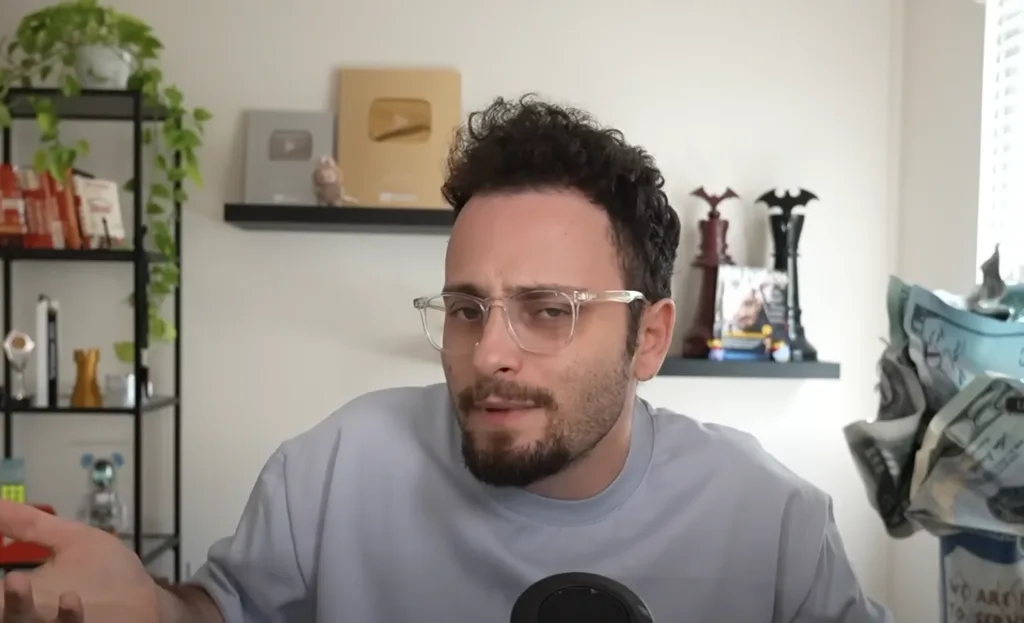In late August 2025, popular chess streamer and educator Levy Rozman – better known as GothamChess – released a video that was part announcement, part celebration, and part rant. At the center was news that the Esports World Cup will now host a season-long Champions Chess Tour qualification cycle, giving chess a more structured and financially secure presence in the world of esports.
But Levy’s excitement quickly morphed into a broader critique of how chess is organized, both online and over-the-board (OTB). His message was not just about prize funds or tournaments; it was about how chess as a sport presents itself to fans, players, and sponsors. To understand what he meant, we need to unpack his arguments in four layers: the announcement itself, why it matters, the feud with FIDE, and his bigger vision for a better chess ecosystem.
1. The Announcement: Chess Joins the Esports World Cup Season
The Esports World Cup 2025 was a one-off tournament in Riyadh, featuring top chess players under the umbrella of a multi-game competition. Now, starting September 2025, that event evolves into a year-long Champions Chess Tour.
- Chess.com’s three flagship events – Titled Tuesday, the Speed Chess Championship, and the Global Championship – will now serve as qualifiers.
- Across three “splits” (seasons), players accumulate points and qualify for major knockout tournaments.
- The top finishers from those knockouts earn spots in the Esports World Cup 2026 finals.
- Magnus Carlsen, as defending champion, is auto-qualified. 12 more come from the tour, with three final slots awarded through a “last chance qualifier.”
This structure mimics esports and traditional sports: a clear season, a ranking system, and recurring events fans can follow. For Rozman, that’s the game-changer.
2. Why It Matters: Stability, Salaries, and Storylines
Rozman emphasized that this shift is not just about one more tournament. It’s about financial security for players and clarity for fans.
- Esports contracts: If a player qualifies regularly for these events, they’re more likely to be signed by an esports organization. That means a guaranteed salary, something rare in professional chess.
- Prize funds: The Esports World Cup minimum payout is $50,000 – even for early exits. That’s life-changing money for players outside the top 10.
- Visibility: With a season-long calendar, fans can follow consistent storylines – “Who’s climbing the leaderboard? Who’s chasing Magnus?” – instead of scattered, isolated tournaments.
Rozman’s only major concern was cheating. With such high stakes and most qualifiers online, the incentive to cheat has never been greater. He warned that sophisticated monitoring or even home proctoring may be necessary.
But overall, he framed the esports circuit as the most positive development in professional chess in years.
3. The Feud with FIDE: A Twitter Storm
What turned Levy’s monologue into a “rant” was the backlash from FIDE – the International Chess Federation.
After he tweeted excitement about the new tour and suggested that over-the-board chess lacked a similar coherent structure, FIDE CEO Emil Sutovsky fired back. Sutovsky argued that:
- OTB chess does have a structured path – through the World Cup, Candidates, and World Championship.
- Prize funds have risen far more than Rozman implied (he claimed 30% vs Levy’s offhand “3%”).
- Levy was misrepresenting FIDE events, deliberately or ignorantly.
Rozman rejected the idea that he was “attacking” FIDE. His point, he said, was simpler: for fans, the OTB system is confusing, inconsistent, and often lacks the best players.
Yes, there are prestigious events like the Candidates. But qualification is complicated, formats differ wildly between tournaments, and even the reigning World Champion (Gukesh) isn’t consistently featured against top rivals like Magnus or Hikaru. Compare that with tennis, Rozman argued, where fans instantly understand the seasonal flow from Opens to Slams.
In his view, FIDE’s calendar looks more like a patchwork of unrelated events than a cohesive circuit.
4. The Bigger Picture: A Broken System
The heart of Rozman’s frustration lies in the structure of professional chess itself.
- Different time controls, different rules: Tata Steel, Norway Chess, the Candidates, the World Championship, and rapid/blitz championships all use different formats. That makes it hard for casual fans to compare results.
- Unclear storylines: In tennis, you know who’s #1, #2, and #3 and can track their rivalry through the year. In chess, one month Alireza might shine, another month Pragg, another time Hikaru – with little connection between those tournaments.
- Inconsistent incentives: Some elite players skip big opens to “sit on their rating” instead of competing. Others chase circuit points in obscure events. The result: fans don’t always see the best players facing each other.
- OTB stagnation: While online chess has exploded, classical OTB prize funds and visibility have not kept pace. Rozman even showed charts suggesting World Championship purses haven’t meaningfully grown in decades.
His conclusion: chess is in a “weird spot.” Popular as a game, fragmented as a sport.
5. Why He’s Excited About Esports
For Rozman, the esports model fixes many of these issues:
- Clarity: A single, connected season where results feed into each other.
- Consistency: Fans know when to tune in and who’s competing.
- Sponsorship appeal: Like tennis’ ATP/WTA structure, it’s easier to sell to brands when you can point to a regular season with stars and stakes.
- Player security: More contracts, more guaranteed income, less dependence on unpredictable invitations.
In short, it gives chess what he thinks it has always lacked: a professional league with storylines people can follow like any other sport.
6. Why It Matters for Fans
Rozman also spoke from the fan’s perspective – and even as a full-time chess content creator, he admitted:
- He doesn’t watch 6-hour broadcasts.
- He often doesn’t even know when a major OTB tournament is happening until it’s already underway.
- His viewers, judging by YouTube comments, feel the same confusion.
But when he covers 400-rated amateur games, those sometimes outperform his videos on the World Championship. Why? Because fans crave entertainment, clarity, and storylines – not six-hour broadcasts of ambiguous importance.
That, he argues, is exactly what the esports format can deliver.
Conclusion: A Call for Structure
What did GothamChess really mean? His message wasn’t an attack on FIDE or the OTB tradition. It was a plea for clarity, consistency, and modernization.
- Esports chess is finally offering a season-long circuit with salaries, storylines, and structure.
- OTB chess, by contrast, remains fragmented, inconsistent, and sometimes opaque even to its biggest promoters.
- Fans, players, and sponsors all benefit when the calendar is unified and the rules are predictable.
Levy ended by calling chess “a weird sport in a weird spot.” But with the esports circuit kicking off in September 2025, he sees hope. For the first time, fans will be able to follow a cohesive, season-long journey of their favorite players.
And that, in his eyes, might be the beginning of chess growing into something as globally recognizable – and commercially viable – as tennis or esports themselves.

I’m a passionate board game enthusiast and a skilled player in chess, xiangqi and Go. Words for Attacking Chess since 2023. Ping me at Lichess for a game or chat.

